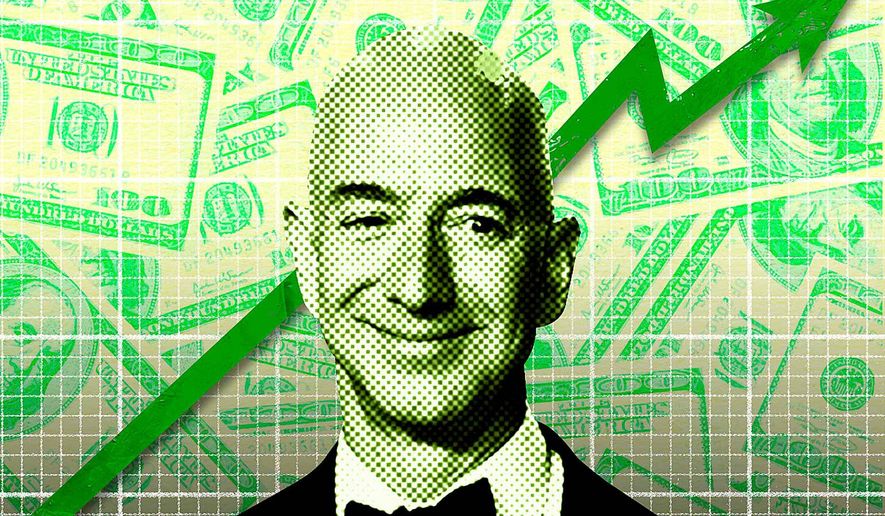OPINION:
Jeff Bezos just informed employees at The Washington Post that the paper’s new editorial mission is to defend “personal liberties and free markets.” Since last year, the billionaire entrepreneur has shocked his friends on the left with his open embrace of common sense.
“A big part of America’s success has been freedom in the economic realm and everywhere else. Freedom is ethical — it minimizes coercion — and practical — it drives creativity, invention, and prosperity,” the Amazon founder wrote.
That will be a big change for an editorial board that not so long ago cheered the COVID-19 lockdowns that sent the economy into a tailspin and isolated millions from their friends and family. “If the restrictions are relaxed now and people start to congregate again, the consequence might be a second explosion of infections and death,” the Post editorial board warned in March 2020.
Another piece bashed President Trump over his failure to commandeer factories to make masks, writing, “If this is a wartime scale of a problem, where is the wartime response?” Never mind that it was obvious from the earliest days of the panic that a piece of cloth wouldn’t stop a microscopic virus.
Last year, the editorial board recognized it may have gone overboard by acknowledging, “School closures and business lockdowns imposed massive costs with which the nation is still reckoning.” Most Americans have long since come to a similar conclusion.
Starting from a principled position of freedom avoids such errors. This also happens to make economic sense for the owner of the world’s largest e-commerce platform — most of the time. Amazon embodies the American dream of someone building a great business idea into a global success story.
The conflict between principle and business interest will be most apparent in foreign policy. Opposition to Russia’s repression is in vogue, so bad-mouthing Moscow earns applause at cocktail parties in Hollywood and Manhattan. It costs nothing.
The true test of whether this is a conversion of convenience or a matter of principle is whether the broadsheet maintains a critical stance on authoritarianism in China. Is Mr. Bezos ready to confront the primary supplier of goods sold on Amazon over its suppression of religious liberty?
Communism remains one of the greatest threats to human freedom around the world, particularly as Beijing uses the Belt and Road initiative to spread the Chinese Communist Party’s influence across Africa and South America. Many business tycoons become evasive on the subject of CCP abuses.
The same is true of Second Amendment questions. Personal liberties aren’t worth much if the state can snatch them away anytime. The right of Americans to defend themselves with firearms has been the cornerstone of preserving the other rights we enjoy in our constitutional republic. This, too, is a principled view that doesn’t go over well among coastal elites — especially those able to afford personal bodyguards.
The left and the right used to be more cooperative over shared values such as free speech. The left has abandoned what it once held as a core belief, dropping its concern over free expression for the ability to suppress political opponents with vague allegations of “hate speech.”
That’s why it’s more important than ever for newspapers to reassert their historic role of defending free speech to ensure government — whether led by a Democrat or a Republican — doesn’t trample on our freedoms.
Welcome, Mr. Bezos, to that fight.




Please read our comment policy before commenting.